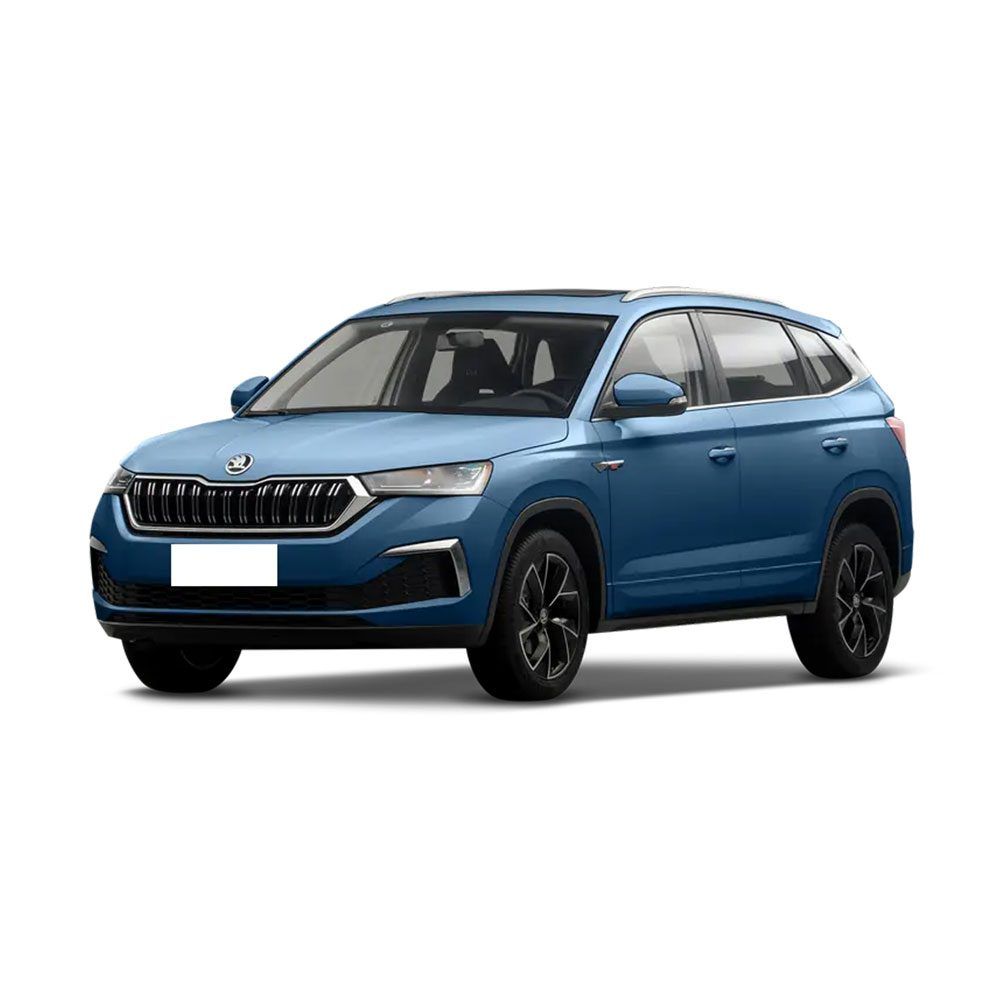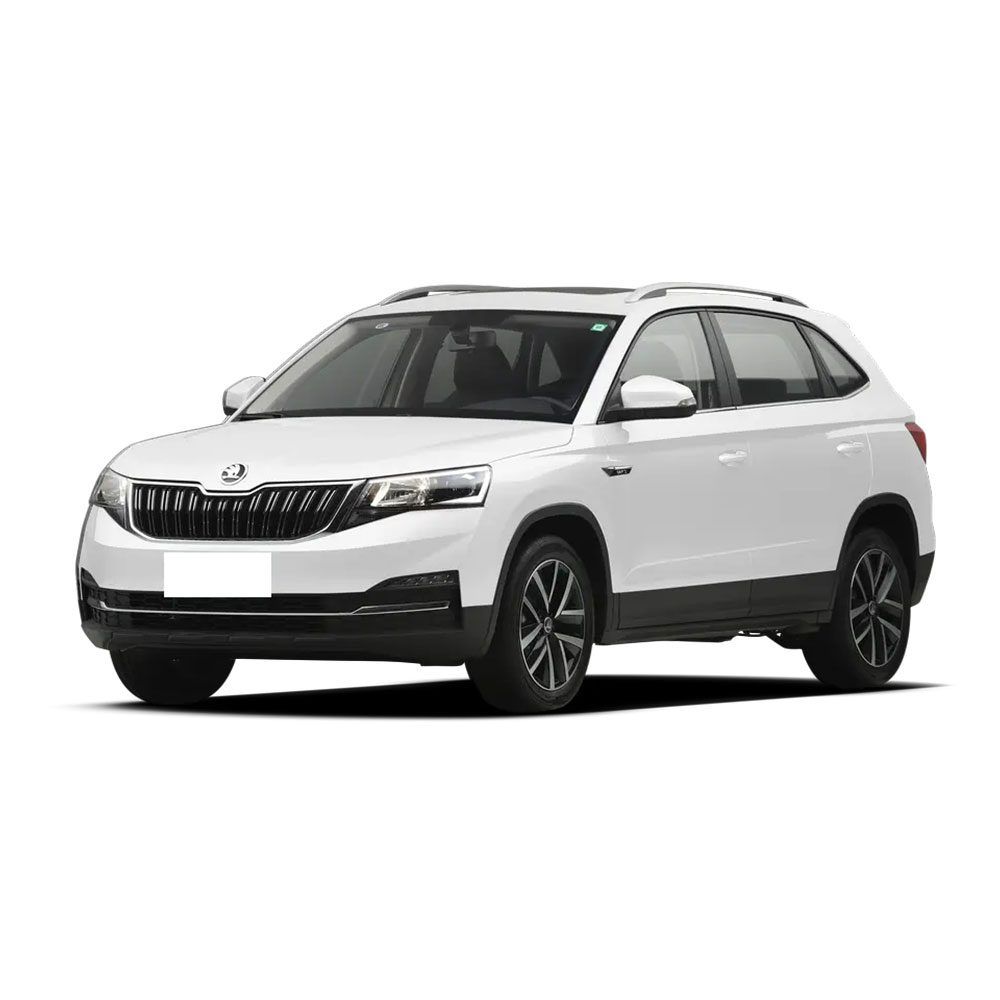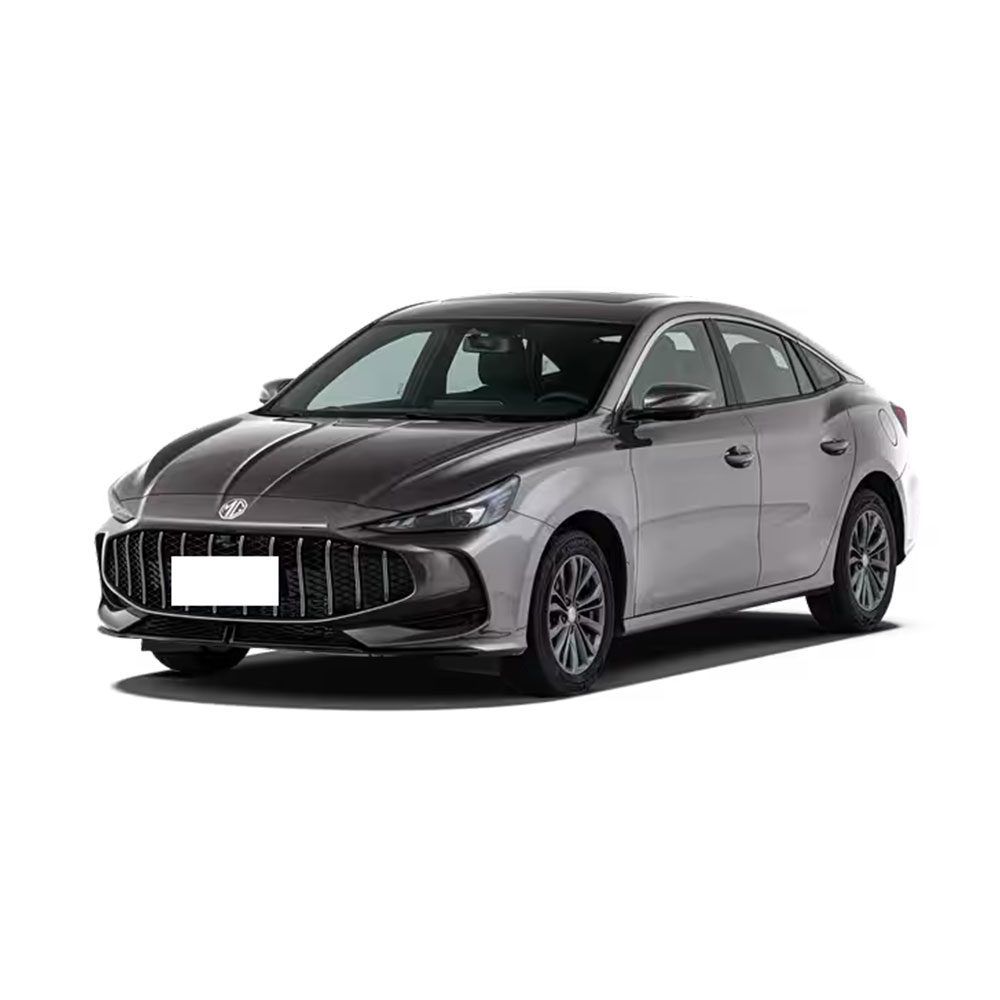Audi RS7 vs BMW M5: Which is Faster? Ultimate Test (2025)
Audi RS7 vs BMW M5: Which is Faster? Ultimate Test (2025)
Which is faster, the Audi RS7 or the BMW M5?
The answer splits between the apexes of the Nürburgring Nordschleife and the straights of Dubai’s highways:
- The Audi RS7, with its quattro all-wheel drive, delivers lightning launches, crushing the 0-60 mph (96 km/h) test in Top Gear with a time of 3.4 seconds on a wet surface.
- Yet, the BMW M5 overtakes the RS7 by a full 4 seconds with a lap time of 3 minutes 42 seconds at Spain’s Ascari Race Resort—defying physics, as the winner depends on the asphalt beneath your wheels.
Based on the latest technical data and global performance tests, a deep analysis of the acceleration capabilities of the Audi RS7 and BMW M5 requires examining three dimensions: powertrain architecture, testing conditions, and model generations. Below is a professional breakdown:
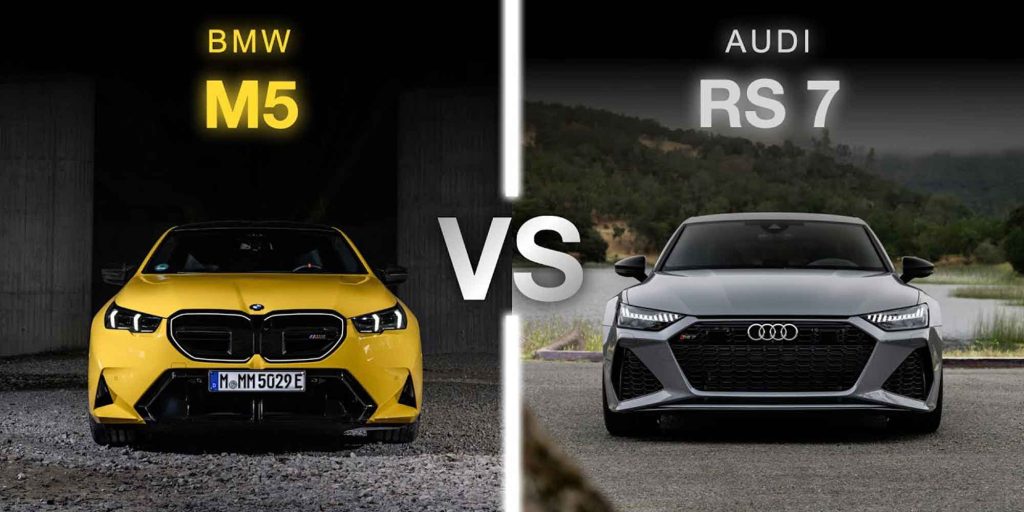
1. Core Powertrain Comparison (Latest 2025 Models)
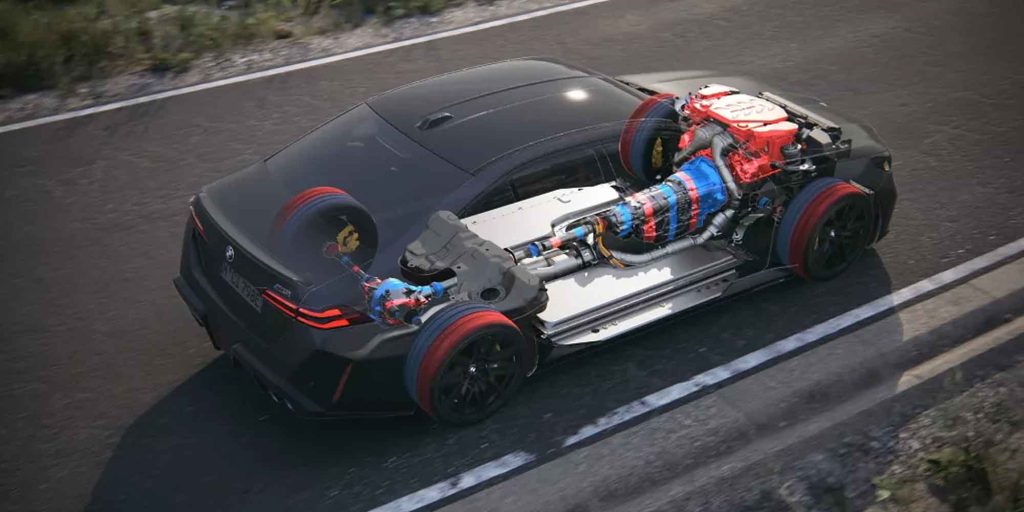
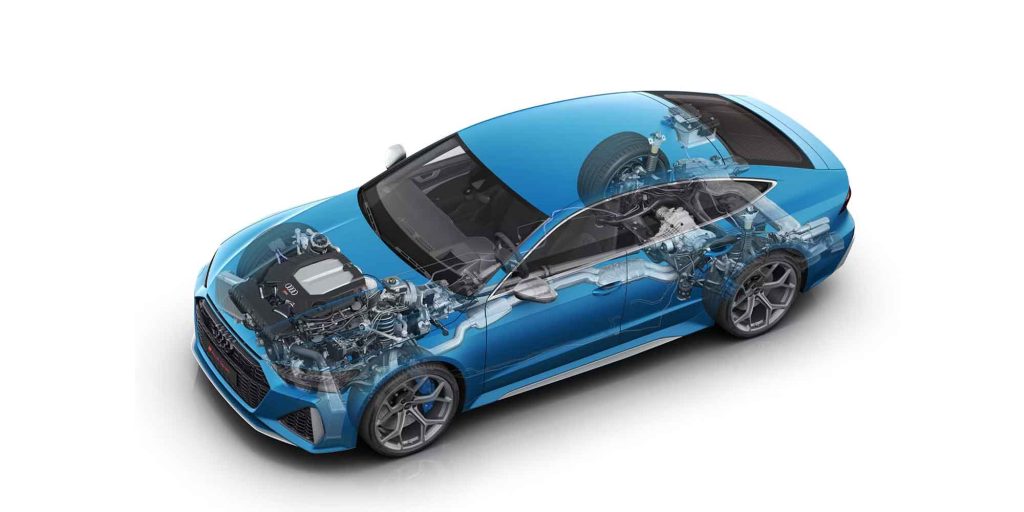
| Model | Audi RS7 (Gasoline) | BMW M5 (Plug-in Hybrid) | Key Technical Differences |
| Engine | 4.0L V8 Biturbo | 4.4L V8 + Electric Motor | M5’s motor compensates for low-RPM turbo lag |
| Max Power | 630 HP (463 kW) | 727 HP (combined) | M5 has 15% higher system power |
| Peak Torque | 850 N·m | Estimated >1000 N·m | PHEV delivers torque earlier |
| 0-100 km/h Acceleration | 3.4 seconds | 3.5 seconds | RS7 leads by 0.1 seconds |
| Drivetrain | quattro AWD | M xDrive AWD (RWD mode) | RS7 offers better launch grip |
Key Insight: The current gasoline RS7 leads the plug-in hybrid M5 by 0.1 seconds in initial acceleration thanks to its superior AWD system, but the M5 overtakes in mid-range acceleration (40-120 km/h) due to the electric motor’s sustained output.
2. Historical Performance Differences
Performance gaps between earlier generations stem from technological evolution:
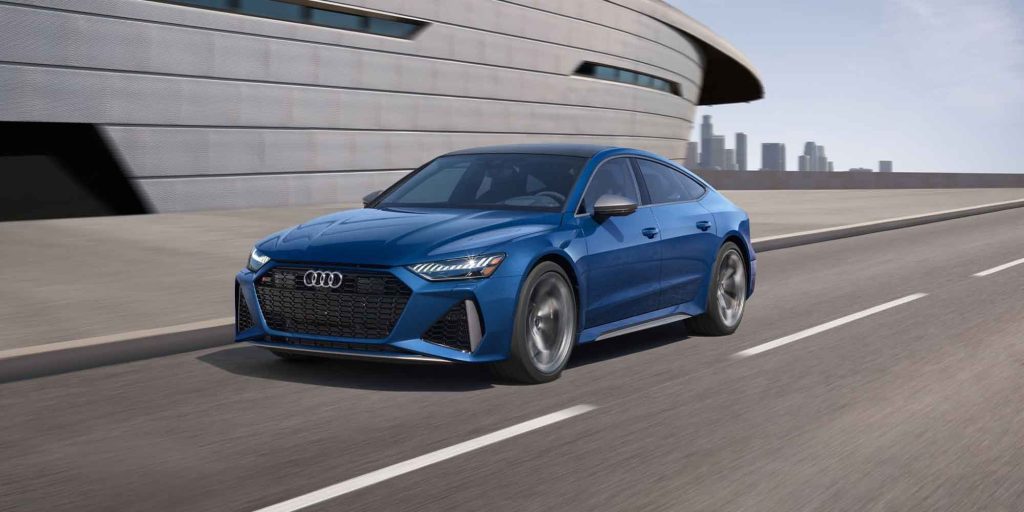
2021–2023 Models
- BMW M5 (600 HP): 0-100 km/h in 3.4 seconds
- Audi RS7 (560 HP): 0-100 km/h in 3.9 seconds (0.5-second gap)
- Reason: M5’s lightweight design (1921 kg vs. RS7’s 2023 kg) resulted in a better power-to-weight ratio (312 HP/ton vs. 299 HP/ton).
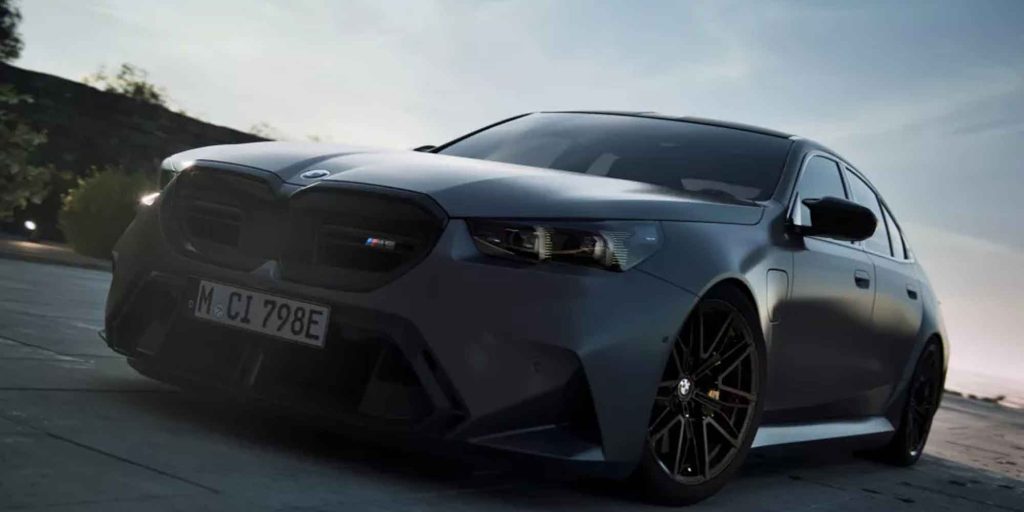
Track Dominance
- At the Nürburgring, the M5’s rear-wheel-drive mode provided better cornering flexibility, beating the RS7 by 4–6 seconds per lap.
- RS7 electronic limiter: 250 km/h (removable to 305 km/h); M5 top speed: 308 km/h.
Testing Variables
- Temperature/Road Surface: RS7’s AWD advantage expands in cold, dry conditions (e.g., 0.3 seconds faster at 0°C).
- Launch Control: M5 Competition responds 0.15 seconds quicker than the RS7.
3. Technological Revolution: 2025 PHEV Showdown
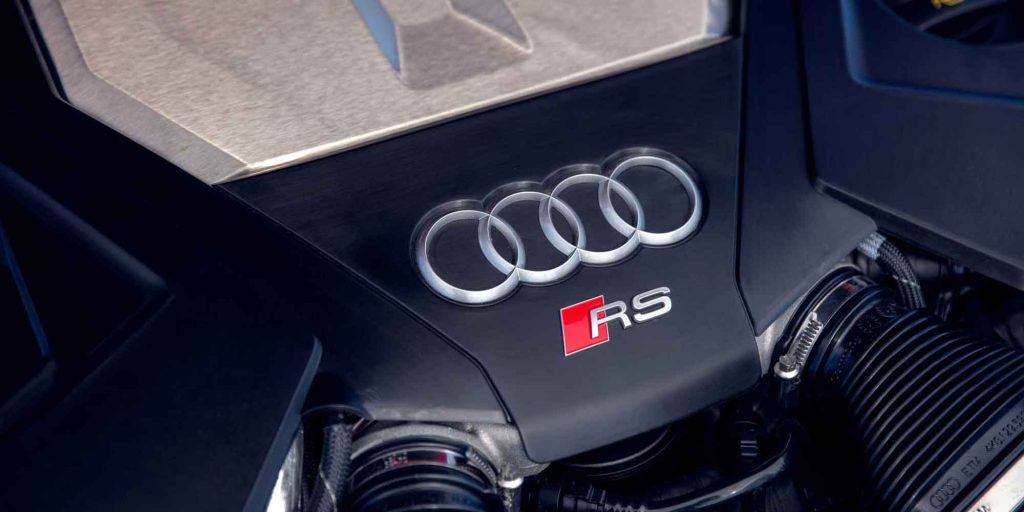
Audi RS7 PHEV (2025 Release)
- Replaces V8 with a 2.9L V6 plug-in hybrid; total output: 597 kW (800+ HP); all-electric range: 80 km.
- Theoretical 0-100 km/h: under 3 seconds; torque exceeds 1000 N·m.
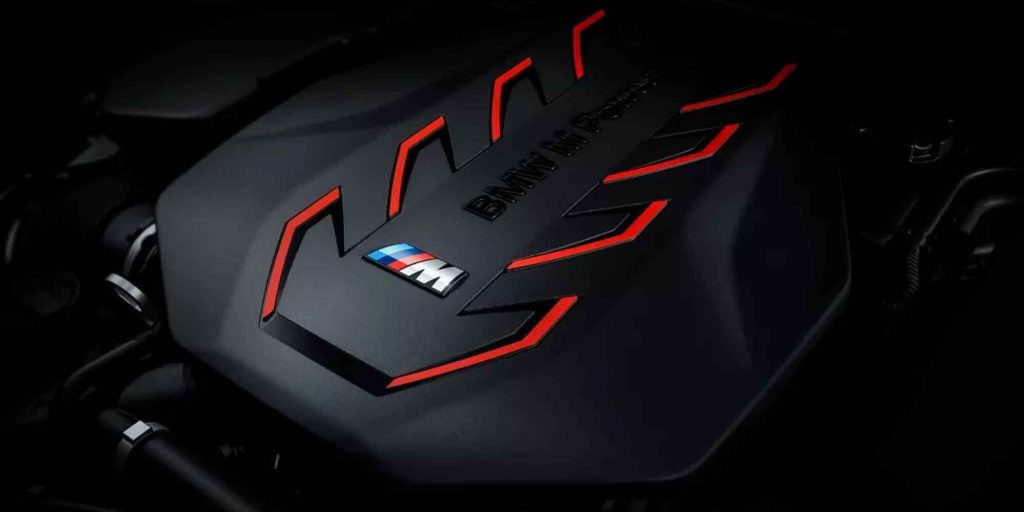
BMW M5 PHEV (Current)
- System power: 535 kW; all-electric range: 68 km; acceleration: 3.5 seconds.
- Drawback: Battery adds 200 kg, reducing cornering limits.
Future Trends: The RS7 PHEV boasts 12% more power than the M5, but BMW has announced an 800V high-voltage system for the next-gen M5, targeting over 100 km of all-electric range.
4. Decision Guide by Usage Scenario
| Scenario | Recommended Model | Key Reason |
| Straight-line acceleration / Snow | Audi RS7 | AWD stability + cold tire efficiency |
| Track days / Driving fun | BMW M5 | RWD drift potential + lightweight |
| City commuting / Policy benefits | M5 PHEV | Tax exemptions + electric mode |
| Exhaust sound experience | RS7 Gasoline | V8 exhaust note at 116 dB |
Conclusion: The Philosophy of Performance
Diverging Definitions of “Fast”
- The RS7 wins in repeatability (AWD offers high fault tolerance, even beginners can achieve 3.4 seconds).
- The M5 wins in ultimate potential (dominates lap times in skilled hands).
Technical Routes
- Audi safeguards performance fundamentals with mechanical AWD, while BMW expands boundaries with diversified powertrains (gasoline/PHEV/EV).
Final Verdict
- The current gasoline RS7 is 0.1 seconds quicker in straight-line acceleration, but the M5 PHEV is more versatile overall.
- The performance throne may change hands when the RS7 PHEV arrives in 2025.
